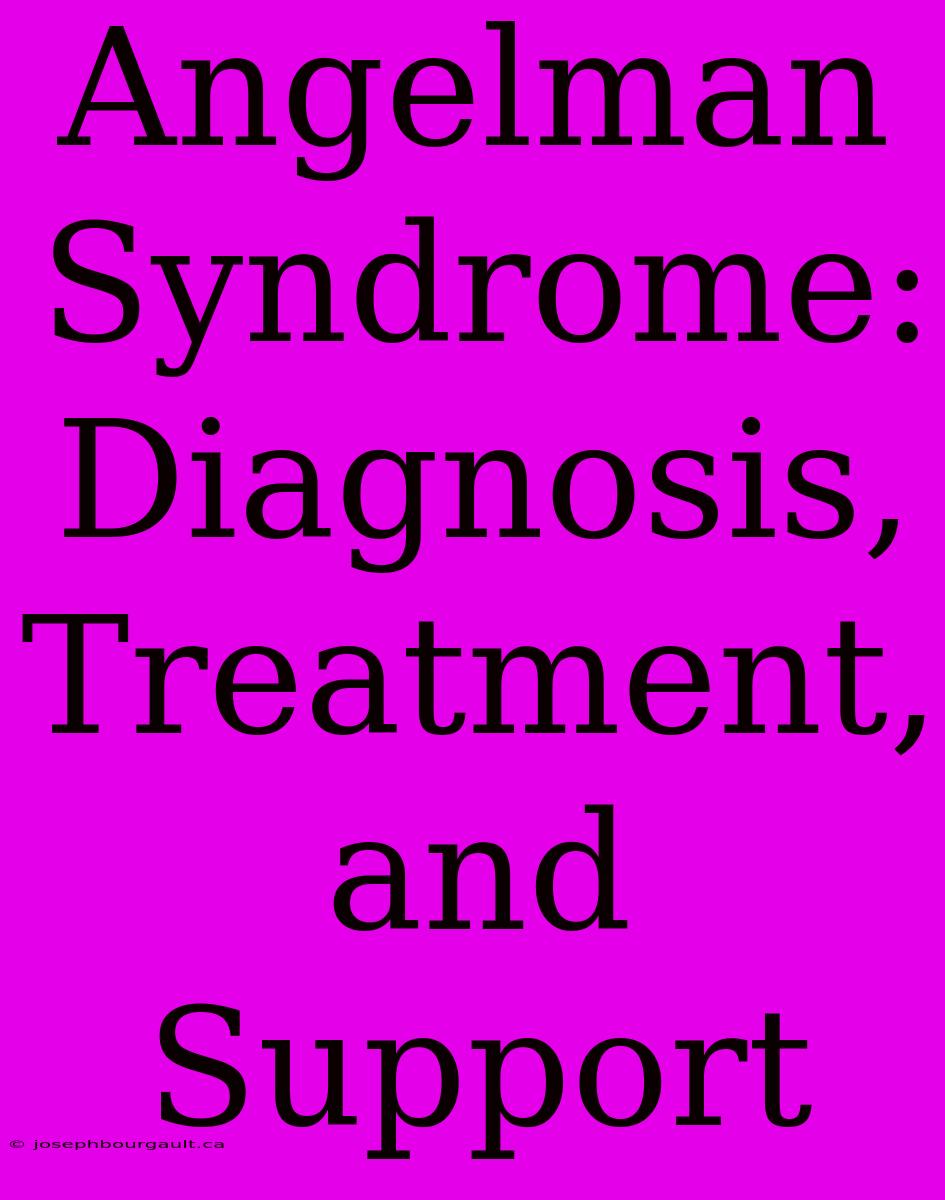Angelman Syndrome: Diagnosis, Treatment, and Support
Angelman Syndrome is a rare genetic disorder that affects the nervous system, leading to developmental delays and intellectual disability. Characterized by distinctive features like a happy demeanor, frequent laughter, and a love for water, Angelman Syndrome can present unique challenges for individuals and their families. This article delves into the crucial aspects of Angelman Syndrome: diagnosis, treatment options, and the vital support system available.
Understanding the Underlying Cause
Angelman Syndrome arises from a genetic mutation, often on chromosome 15. This mutation disrupts the function of the UBE3A gene, responsible for producing a critical protein involved in brain development. While the syndrome is primarily a genetic condition, there are instances where it can be caused by deletions, duplications, or imprinting errors on the chromosome.
Identifying the Signs: A Multifaceted Diagnosis
Diagnosing Angelman Syndrome requires a comprehensive evaluation involving:
1. Physical Examination: Observing characteristic traits like:
- Delayed Development: Significant developmental delays in speech, motor skills, and cognitive abilities.
- Movement and Balance Issues: Ataxia, or difficulties with coordination and balance.
- Seizures: Seizures are common in individuals with Angelman Syndrome, presenting in various forms.
- Unusual Gait: A distinctive, jerky, and sometimes "puppet-like" walk.
- Sleep Disturbances: Often struggling with sleep patterns.
2. Genetic Testing: Confirming the underlying genetic cause through:
- Chromosome Analysis: Examining chromosome 15 for deletions, duplications, or imprinting errors.
- UBE3A Gene Testing: Analyzing the UBE3A gene for mutations.
3. Behavioral Observations: Recognizing specific behavioral traits like:
- Happy Demeanor: A cheerful disposition with frequent laughter and smiling.
- Love for Water: A strong attraction to water and swimming.
- Hyperactivity and Attention Issues: High levels of energy and difficulties with attention span.
- Hand-Flapping: Repetitive hand-flapping movements.
Addressing the Challenges: Treatment Options
There is currently no cure for Angelman Syndrome, but a multidisciplinary approach can help manage the symptoms and improve quality of life:
1. Therapy and Education:
- Physical Therapy: Enhancing motor skills and coordination.
- Occupational Therapy: Improving daily living skills and fine motor coordination.
- Speech Therapy: Addressing speech and language delays.
- Specialized Education: Tailored educational programs that cater to their unique needs.
2. Medications:
- Anti-Seizure Medications: Controlling seizures and managing associated symptoms.
- Behavioral Medications: Addressing specific behavioral challenges.
3. Supportive Care:
- Nutrition and Diet: Ensuring adequate nutrition and addressing any feeding difficulties.
- Dental Care: Maintaining oral health due to the increased risk of dental problems.
- Sleep Hygiene: Establishing healthy sleep routines and addressing sleep disturbances.
The Power of Support: Navigating the Journey
Living with Angelman Syndrome requires a robust support system, involving:
1. Family and Friends: Providing emotional, practical, and financial assistance. 2. Support Groups: Connecting with other families facing similar challenges, sharing experiences and finding solace. 3. Healthcare Professionals: Building strong relationships with doctors, therapists, and other professionals. 4. Advocacy Organizations: Championing research and resources for individuals with Angelman Syndrome.
Looking Ahead: Research and Hope
Significant advancements are being made in understanding and treating Angelman Syndrome. Ongoing research aims to develop effective therapies, including gene therapy, to address the underlying genetic cause. This hope fuels the ongoing quest for a brighter future for individuals with Angelman Syndrome and their families.
Remember: Early diagnosis and intervention are crucial for maximizing outcomes. If you suspect Angelman Syndrome, consult a healthcare professional promptly for proper assessment and guidance.

